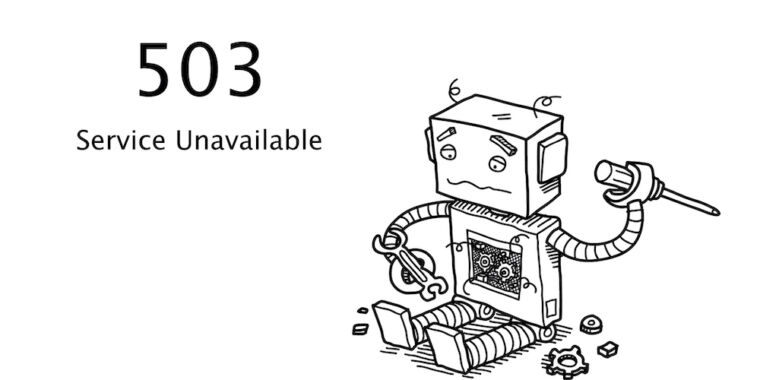How software solves the problems of the modern world
As Hackernoon reports, "Over the past few years, software has shifted essential life processes to the digital environment, which helps solve problems in various industries efficiently and quickly."
Most developers don't just think about writing code, but try to create practical applications to help people, animals and the planet. To understand how digital technology has changed our lives, it is necessary to learn about real-world problems solved with software.
Software that solves people's problemsThe IT sector is increasingly in demand, and the use of applications is increasing every day with no slowdown expected in the future. According to Statista, there are over 6.3 billion smartphone users worldwide. In app stores you can find an app for almost every need:
sports and nutrition; health and spiritual development; count finance and online banking; taxi service and delivery; reservation of tickets, hotels, restaurants, etc.They have made a real revolution in the world and helped people separate time from routine tasks and do more valuable things. However, there is a special apps section that solves serious problems for people. They positively influence our health and help to effectively monitor the body.
Software for online doctor visitsWith the onset of a pandemic that has almost changed the way of life around the world, many services have gone online. Medical services were no exception; they offered patients two support options: consult a doctor via audio or video communication and answer questions from specialists via chat or undergo remote diagnosis using special devices (e.g. measuring and controlling the heart rate).
online psychological therapy softwareIt often happens that a solution to a difficult psychological situation is not always possible to find on your own, one does not want to discuss it with friends, and there is no time for a psychotherapist, and sometimes even money. To help a person deal with such problems, companies develop and improve virtual assistants every year: applications that provide support and assistance. According to MarketWatch, the top 20 mental health apps in the United States were downloaded by 4 million users for the first time in April 2020. An online specialist will help relieve stress, settle a relationship with a partner, to find a common language with a child, and much more. For example, Siri, Apple's virtual assistant, will call the rescue service if it recognizes a suicidal orientation in a question.
The My Pocket Therapist app brings together therapists from across the UK to consult with patients online.
It is a very convenient platform that helps you find the right therapist, book an appointment and conduct a video session in real time. Patients can book sessions, pay and leave reviews. Physicians create profiles, schedule appointments, and receive payments effortlessly.
Of course, apps won't replace hospital visits, making medical services more accessible. They can also ease patient flows during a pandemic, weeding out people with minimal symptoms. However, for services to truly help people, they must be functional, convenient, secure, and contain legal information.
Software for people with disabilitiesSimple actions such as talking on the smartphone, walking down the stairs or even determining the expiry date of groceries in a store can become difficult for people with disabilities. However, some of these issues can be successfully resolved using an app:
Roger Voice. It is a software that deaf people can use to talk to their interlocutors on smartphones. This app uses voice recognition technology to convert voice to text so deaf people can read what the other person is saying to them. Listen to yourself now. With this application, deaf and hard of hearing users can adjust the sound according to their situation: public places, meetings, etc. To do this, they need to connect headphones to the smartphone, through which the sound is provided with appropriate settings to optimize the background or foreground. Dev...
As Hackernoon reports, "Over the past few years, software has shifted essential life processes to the digital environment, which helps solve problems in various industries efficiently and quickly."
Most developers don't just think about writing code, but try to create practical applications to help people, animals and the planet. To understand how digital technology has changed our lives, it is necessary to learn about real-world problems solved with software.
Software that solves people's problemsThe IT sector is increasingly in demand, and the use of applications is increasing every day with no slowdown expected in the future. According to Statista, there are over 6.3 billion smartphone users worldwide. In app stores you can find an app for almost every need:
sports and nutrition; health and spiritual development; count finance and online banking; taxi service and delivery; reservation of tickets, hotels, restaurants, etc.They have made a real revolution in the world and helped people separate time from routine tasks and do more valuable things. However, there is a special apps section that solves serious problems for people. They positively influence our health and help to effectively monitor the body.
Software for online doctor visitsWith the onset of a pandemic that has almost changed the way of life around the world, many services have gone online. Medical services were no exception; they offered patients two support options: consult a doctor via audio or video communication and answer questions from specialists via chat or undergo remote diagnosis using special devices (e.g. measuring and controlling the heart rate).
online psychological therapy softwareIt often happens that a solution to a difficult psychological situation is not always possible to find on your own, one does not want to discuss it with friends, and there is no time for a psychotherapist, and sometimes even money. To help a person deal with such problems, companies develop and improve virtual assistants every year: applications that provide support and assistance. According to MarketWatch, the top 20 mental health apps in the United States were downloaded by 4 million users for the first time in April 2020. An online specialist will help relieve stress, settle a relationship with a partner, to find a common language with a child, and much more. For example, Siri, Apple's virtual assistant, will call the rescue service if it recognizes a suicidal orientation in a question.
The My Pocket Therapist app brings together therapists from across the UK to consult with patients online.
It is a very convenient platform that helps you find the right therapist, book an appointment and conduct a video session in real time. Patients can book sessions, pay and leave reviews. Physicians create profiles, schedule appointments, and receive payments effortlessly.
Of course, apps won't replace hospital visits, making medical services more accessible. They can also ease patient flows during a pandemic, weeding out people with minimal symptoms. However, for services to truly help people, they must be functional, convenient, secure, and contain legal information.
Software for people with disabilitiesSimple actions such as talking on the smartphone, walking down the stairs or even determining the expiry date of groceries in a store can become difficult for people with disabilities. However, some of these issues can be successfully resolved using an app:
Roger Voice. It is a software that deaf people can use to talk to their interlocutors on smartphones. This app uses voice recognition technology to convert voice to text so deaf people can read what the other person is saying to them. Listen to yourself now. With this application, deaf and hard of hearing users can adjust the sound according to their situation: public places, meetings, etc. To do this, they need to connect headphones to the smartphone, through which the sound is provided with appropriate settings to optimize the background or foreground. Dev...What's Your Reaction?















![Three of ID's top PR executives quit ad firm Powerhouse [EXCLUSIVE]](https://variety.com/wp-content/uploads/2023/02/ID-PR-Logo.jpg?#)







